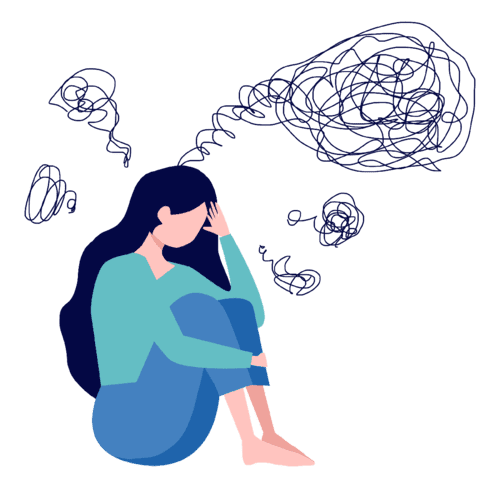Sexual Orientation OCD Assessment
Free Sexual Orientation OCD Assessment

What is Sexual Orientation OCD Assessment?
Sexual Orientation OCD Assessment involves evaluating individuals for Obsessive-Compulsive Disorder (OCD) related to their sexual orientation. It includes assessing intrusive, distressing thoughts about one’s sexual orientation, which can lead to excessive doubts, anxiety, and compulsive behaviors. Professionals use interviews and questionnaires to determine the presence and severity of these obsessions and compulsions. Differential diagnosis is crucial to distinguish this from genuine exploration of one’s orientation. Treatment often includes Cognitive Behavioral Therapy (CBT) and Exposure and Response Prevention (ERP) to alleviate distress and manage intrusive thoughts, helping individuals lead healthier lives in alignment with their true sexual orientation.
Who can benefit from this Sexual Orientation OCD Assessment?
The Sexual Orientation OCD Assessment can benefit individuals struggling with intrusive thoughts and anxiety related to their sexual orientation. It’s designed for those who experience distressing doubts, obsessions, and compulsions questioning their true orientation, regardless of their actual sexual identity. This assessment helps identify if these concerns are indicative of Sexual Orientation OCD, a subtype of OCD. Individuals seeking clarity and relief from the mental distress caused by these thoughts can use this assessment as a valuable tool to better understand their condition and consider seeking appropriate support or treatment.
Sexual Orientation OCD Assessment Accuracy
Sexual Orientation OCD, a subtype of Obsessive-Compulsive Disorder, involves distressing doubts about one’s sexual orientation. Assessments for this condition aim to understand the individual’s obsessions, compulsions, and emotional distress. While assessments can provide valuable insights, a comprehensive diagnosis requires a skilled mental health professional’s evaluation. Accurate assessment involves considering the persistent nature of distressing thoughts, impact on daily life, and ruling out other factors. It’s crucial to approach assessments with sensitivity and to seek professional guidance for an accurate diagnosis and appropriate treatment.
Types of Sexual Orientation OCD Assessment
Clinical Interview:
A mental health professional will conduct a thorough clinical interview to gather information about the individual’s symptoms, thoughts, feelings, and history. They may ask questions about the nature of the intrusive thoughts, their impact on daily life, and any related compulsions or behaviors.
Diagnostic Criteria:
The mental health professional will assess whether the individual’s symptoms meet the diagnostic criteria for OCD, as outlined in the DSM-5
Assessment Tools:
There are several standardized assessment tools that mental health professionals might use to assess OCD and related symptoms. Some examples include the Yale-Brown Obsessive Compulsive Scale (Y-BOCS) and the Obsessive Compulsive Inventory-Revised (OCI-R).
Differential Diagnosis:
It’s important to differentiate Sexual Orientation OCD from a person’s genuine sexual orientation. The mental health professional will work to distinguish between distress caused by intrusive thoughts versus a genuine shift in sexual orientation.
Exploration of Compulsions:
Individuals with Sexual Orientation OCD might engage in mental or behavioral compulsions to reduce their anxiety related to their intrusive thoughts. These compulsions might include seeking reassurance, avoiding certain situations, or engaging in mental rituals.
Impact on Functioning:
The assessment will also consider how the individual’s symptoms are impacting their daily functioning, relationships, and overall well-being.
Handling Sexual Orientation OCD Issues
Handling issues related to Sexual Orientation OCD (Obsessive-Compulsive Disorder) requires a combination of understanding, self-care, and potentially professional help. Here are some steps you can consider taking if you or someone you know is dealing with this type of OCD:
- Educate Yourself: Understanding what Sexual Orientation OCD is can be the first step toward managing it. This type of OCD involves obsessive thoughts and doubts about one’s sexual orientation, even when there is no genuine doubt. Recognizing that these thoughts are a part of the OCD and not a reflection of true sexual orientation is essential.
- Seek Professional Help: Consulting a mental health professional, ideally one with experience in treating OCD or anxiety disorders, can be extremely helpful. Therapies like Cognitive Behavioral Therapy (CBT) and Exposure and Response Prevention (ERP) have been shown to be effective in treating OCD. A therapist can guide you through strategies to challenge and manage intrusive thoughts.
- Practice Mindfulness and Grounding Techniques: Mindfulness meditation and grounding techniques can help you stay present and reduce the power of intrusive thoughts. Breathing exercises, meditation, and other relaxation techniques can provide relief during moments of anxiety.
- Avoid Compulsions: In OCD, compulsions are behaviors or mental acts that are performed to alleviate the anxiety caused by obsessions. In the context of Sexual Orientation OCD, this might involve seeking reassurance from others, analyzing feelings excessively, or avoiding situations that trigger distress. While it can be challenging, resisting these compulsions is important for breaking the cycle of OCD.
- Challenge Negative Thoughts: Engage in cognitive restructuring by questioning the validity of your obsessive thoughts. Consider whether there is any real evidence to support the doubts about your sexual orientation. A therapist can help guide you through this process.
- Maintain a Routine: Structure and routine can help reduce overall anxiety. Engaging in regular physical activity, getting sufficient sleep, and maintaining a balanced diet can positively impact your mental well-being.
- Support Network: Reach out to supportive friends, family members, or support groups. Sharing your struggles with people who understand and care about you can provide emotional relief and lessen the isolation you might be feeling.
- Self-Compassion: Be kind to yourself. Remember that OCD is a medical condition, and the thoughts you’re experiencing are not your fault. Instead of criticizing yourself, practice self-compassion and treat yourself as you would a friend in a similar situation.
- Medication: In some cases, a psychiatrist might recommend medication to manage the symptoms of OCD. This is a decision that should be made in consultation with a medical professional.
Remember that recovery from Sexual Orientation OCD is possible with the right strategies and support. If you or someone you know is struggling with this, it’s important to seek help from mental health professionals who specialize in treating OCD.

